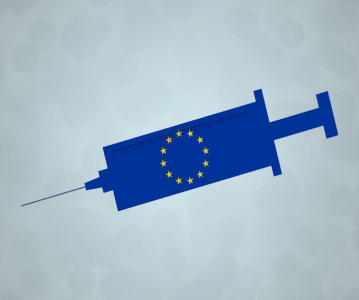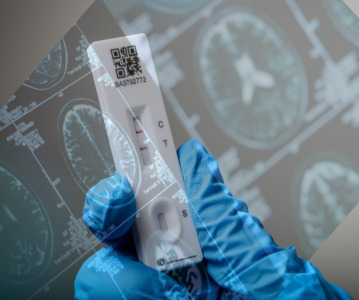Lilly's Trulicity label updated to include use in combination with basal insulin for adults with type 2 diabetes

Trulicity is a once-weekly glucagon-like peptide-1 (GLP-1) receptor agonist injectable prescription medicine.
The label for Eli Lilly's once-weekly Trulicity (dulaglutide) is now updated to include use in combination with basal insulin for adults with type 2 diabetes. The FDA included the changes to the approved product labeling to reflect this important information for prescribers. Trulicity is available in a prefilled pen in 0.75 and 1.5 mg doses.
"Despite best efforts to manage their A1C, many adults with type 2 diabetes may need to add to or change their treatment plan to help them reach their blood sugar goals," said Sherry Martin, vice president, Global Medical Affairs, Lilly Diabetes. "They now have the option to use Trulicity, with its powerful efficacy in a once-weekly, easy-to-use pen, along with basal insulin for even greater control."
Trulicity is a once-weekly glucagon-like peptide-1 (GLP-1) receptor agonist injectable prescription medicine to improve blood sugar (glucose) in adults with type 2 diabetes. It should be used along with diet and exercise.
Trulicity is not recommended as the first medication to treat diabetes. It has not been studied in people who have had inflammation of the pancreas (pancreatitis). It is not a substitute for insulin. Trulicity should not be used by people with type 1 diabetes, people with diabetic ketoacidosis, or people with a history of severe stomach or intestinal problems. It has not been studied in children under 18 years of age.
Trulicity has a Boxed Warning about potential thyroid tumors, including cancer. It should not be taken by someone with a personal or family history of medullary thyroid cancer, a personal history of Multiple Endocrine Neoplasia syndrome type 2, or an allergy to Trulicity.
The Trulicity label update is based on FDA review of results from the AWARD-9 clinical trial, a Phase IIIb, randomized, double-blind, placebo-controlled, 28-week study that evaluated the efficacy and safety of once-weekly Trulicity 1.5 mg as an add-on to titrated insulin glargine, with or without metformin, compared with placebo as an add-on to titrated insulin glargine, with or without metformin. Study results showed that Trulicity 1.5 mg significantly reduced A1C as an add-on to insulin glargine after 28 weeks compared to placebo plus insulin glargine.
The label was also updated to include results from the AWARD-8 clinical trial, a Phase IIIb randomized, double-blind, placebo-controlled, 24-week study that evaluated the efficacy and safety of Trulicity 1.5 mg as an add-on to sulfonylurea compared to placebo plus sulfonylurea.
Trulicity was first approved in September 2014 as a once-weekly injectable prescription medicine to improve blood sugar (glucose) in adults with type 2 diabetes, based in part on results from five Phase 3 studies of Trulicity used alone or in combination with other diabetes medications, including metformin, pioglitazone, glimepiride and insulin lispro. With this update, Trulicity is the first and only GLP-1 receptor agonist with a label that allows its use in combination with mealtime insulin or basal insulin.
Related News
-
News Patients vs Pharma – who will the Inflation Reduction Act affect the most?
The Inflation Reduction Act brought in by the Biden administration in 2022 aims to give better and more equitable access to healthcare in the USA. However, pharma companies are now concerned about the other potential costs of such legislation. -
News CPHI Podcast Series: What does the changing US Pharma market mean for industry and patients alike?
In this week's episode of the CPHI Podcast Series Lucy Chard, Digital Editor for CPHI Online is joined by James Manser to discuss the political and market changes in the US pharma field. -
News CPHI Barcelona Annual Report illuminates industry trends for 2024
The CPHI Annual Survey comes into it’s 7th year to report on the predicted trends for 2024. Over 250 pharma executives were asked 35 questions, with their answers informing the industry landscape for the next year, spanning all major pharma marke... -
News Which 10 drugs are open to price negotiation with Medicare in the USA?
The Centres for Medicare & Medicaid Services, under the Biden administration in the USA, has released a list of the 10 drugs that will be open to price negotiations as part of the new legislation under the Inflation Reduction Act (IRA). -
News EU Medical Devices Regulation causes unintended disappearances of medical devices for children, doctors state
Doctor groups and associations have appealed to the EU to correct the EU Medical Devices Regulation law that may cause unintended shortages of essential drug and medical devices for children and rare disease patients. -
News 10 Major Drug Approvals So Far in 2023
Last year, 37 novel drugs were approved by the FDA, this was a high number for such a category, and covered many fields including oncology, demonstrating how promising further research is, and how it is only continuing to build. To date, there are alre... -
News Detecting Alzheimer's disease with a simple lateral flow test
A novel rapid diagnostic test for early-stage Alzheimer's disease has been developed using a biomarker binder from Aptamer Group along with technology from Neuro-Bio, the neurodegenerative disease experts. -
News CPHI Podcast Series: outsourcing and manufacturing trends
Listen to the CPHI Podcast Series this June to hear Gil Roth of the PBOA speak with Digital Editor Lucy Chard about the biggest trends and topics to watch in pharma outsourcing and manufacturing at the minute.
Position your company at the heart of the global Pharma industry with a CPHI Online membership
-
Your products and solutions visible to thousands of visitors within the largest Pharma marketplace
-
Generate high-quality, engaged leads for your business, all year round
-
Promote your business as the industry’s thought-leader by hosting your reports, brochures and videos within your profile
-
Your company’s profile boosted at all participating CPHI events
-
An easy-to-use platform with a detailed dashboard showing your leads and performance







